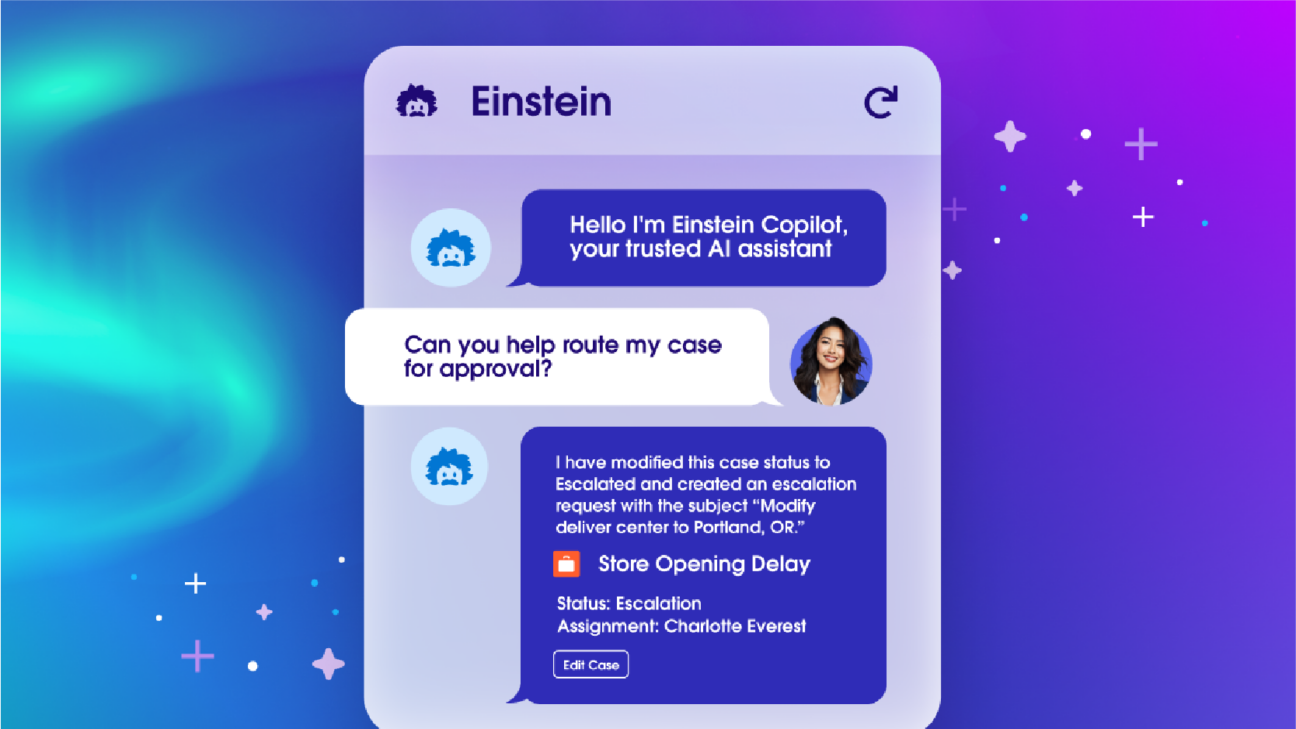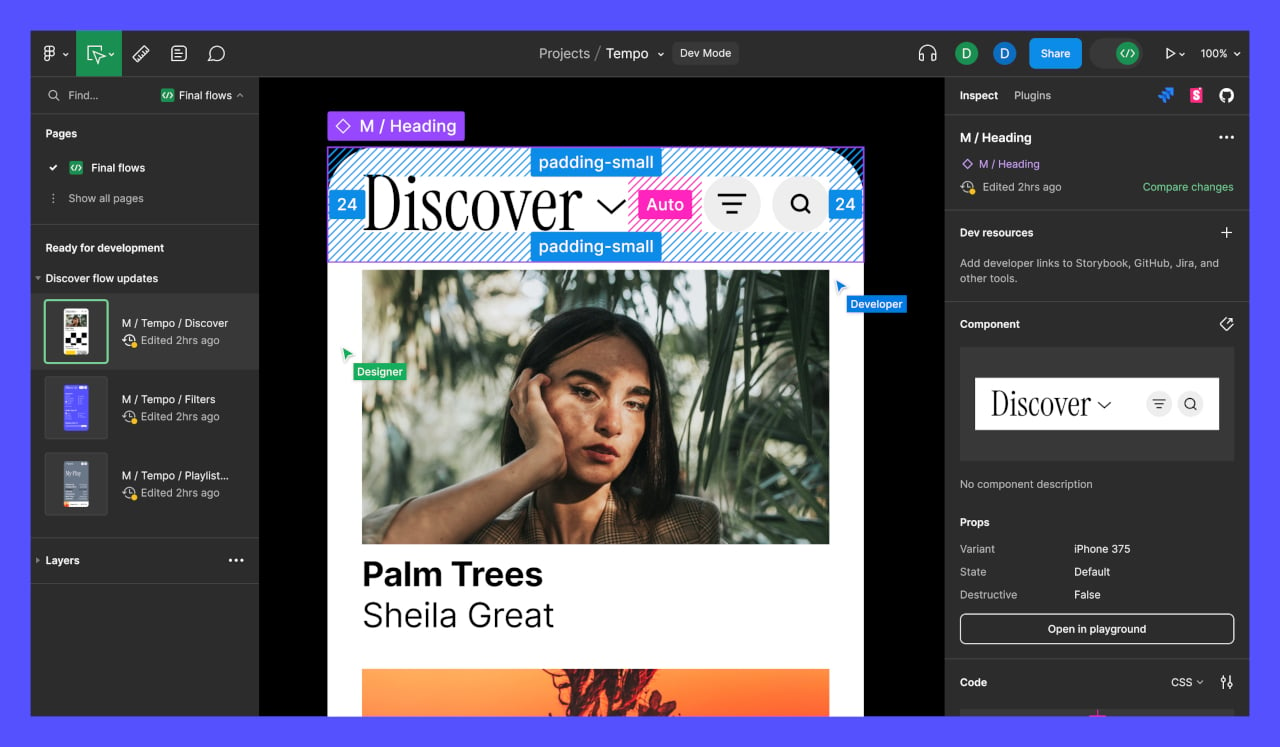Version 31.0

Written & Compiled by Macklin Andrick, GPJ Sr. Creative Technologist
GPJ’s Experience Technology practice is your trusted guide through the latest technological shifts and how they might benefit your next experience. Another week, another opportunity to explore some of the weird and wild things going on in the tech world!
This week in tech, we’re blasting off with Einstein Copilot, Salesforce’s new AI wingman for CRM, promising to turbocharge your data insights and automate tasks with finesse. Meanwhile, Samsung wraps tech around your finger with the Galaxy Ring, a smart AI-powered wellness companion that’s redefining health tracking. Tune in, turn up, and get ready for a ride through the latest and greatest in tech!

Salesforce’s Einstein Copilot is Here
Salesforce introduced Einstein Copilot, a novel AI assistant for CRM, marking its beta release. This conversational, generative AI tool is designed to provide trusted, customized responses by leveraging a company’s own data and metadata, ensuring deep integration with Salesforce’s CRM applications. Unlike other AI assistants that might not utilize company-specific data effectively, Einstein Copilot is engineered for precise, data-driven insights and task automation, aiming to enhance productivity, deepen customer relationships, and boost margins. Accessible through the Einstein 1 Editions upgrade, it integrates AI, CRM, and Data Cloud into a comprehensive package. With features like conversational UI, out-of-the-box actions, and a reasoning engine, Einstein Copilot supports a wide range of business processes, from sales and customer service to financial services. It emphasizes privacy and security through the Einstein Trust Layer, ensuring data protection while facilitating efficient, personalized customer interactions. The tool’s global beta availability spans Sales Cloud and Service Cloud, with plans for Commerce Cloud and Marketing Cloud later in 2024, and a special version for Tableau expected in the second half of the year.
Samsung Unveils Galaxy Ring, a Smart AI-Powered Wellness Companion at Your Fingertips
At the 2024 Mobile World Conference in Barcelona, Samsung unveiled the Galaxy Ring, a pioneering wearable device aimed at enhancing wellness through advanced technology. This smart ring, designed for continuous wear, incorporates cutting-edge sensor technology and artificial intelligence to monitor health metrics closely, offering users personalized health insights and recommendations. By integrating various technologies from the Samsung Galaxy ecosystem, the Galaxy Ring promises a holistic health-tracking experience, focusing on aspects like sleep quality and overall wellness, accessible 24/7. Samsung’s introduction of the Galaxy Ring aligns with its commitment to advancing health and wellness technologies, emphasizing ease of use, continuous health monitoring, and a seamless integration into their broader digital wellness platform.


Figma Caters to Developers with Dev Mode and AI Integrations
Amazon has introduced Q, an AI-powered chatbot for AWS customers, announced at the AWS re:Invent conference in Las Vegas. Priced at $20 per user per year and currently in public preview, Q is trained on 17 years of AWS knowledge to provide solutions and advice on AWS-related queries. It integrates with various apps and software like Salesforce, Jira, Zendesk, Gmail, and Amazon S3, learning about a business’s structure and operations. Q can analyze data, generate content, and perform actions like creating service tickets and updating dashboards. It also offers features for troubleshooting, such as network connectivity issues, and integrates with CodeWhisperer for code generation and interpretation. Q’s responses and actions are controllable and filterable, ensuring security and privacy. This tool is seen as Amazon’s response to similar AI-driven services in cloud computing, like Microsoft’s Copilot for Azure and Google Cloud’s Duet AI, and is considered a significant advancement in aiding developers with AI.
Subscription services are changing our relationship to gaming
There is a profound impact of subscription services like Xbox Game Pass on gaming, particularly in countries like Argentina where the cost of physical games is prohibitively high due to economic factors such as hyperinflation. Subscription services offer a more affordable means to access games, altering perceptions of game ownership and the importance of game preservation amidst rising prices and the unavailability of physical copies. The shift back to USD pricing on platforms like Steam exacerbates the situation, making digital libraries and subscription services more appealing despite their limitations, such as variable catalogs and potential loss of access to games. The narrative captures a community’s adaptation to these challenges, where the convenience and cost-effectiveness of subscription services are weighed against the desire for ownership and preservation, leading to a resigned acceptance of the digital shift and an increased reliance on alternatives like piracy for access and preservation.


Physical media week
In a special issue dedicated to the relevance of physical media in a digital era, The Verge embarks on an exploration of the crucial role that discs and cartridges play in preserving cultural history and art accessibility. Highlighting the stark reality that a significant portion of artistic works, including movies and classic video games, are disappearing into the ether of digital platforms, this issue delves into how physical media serves as a bastion against the loss of ownership and historical significance. It features discussions on boutique publishers releasing special editions, foundations preserving video game history, musicians opting for retro formats, and the pitfalls of subscription services, while advocating for the importance of building tangible collections. Despite the push towards digital, the enduring value of physical media in maintaining access to a broad spectrum of cultural artifacts is more apparent than ever, underscoring its irreplaceable role in keeping art alive.
Spotify’s new ‘Song Psychic’ is like a Magic 8-Ball that answers your questions with music
Nielsen’s January report highlights YouTube’s stronghold as the top streaming service in the U.S., capturing 8.6% of TV screen viewing, surpassing Netflix’s 7.9%. This marks a year-long dominance in the streaming sector for YouTube, emphasizing a shift towards user-generated content, especially among Gen Z viewers who prefer it over traditional TV shows. The platform’s success is further underscored by a significant increase in TV viewership for top YouTubers, with creators like HopeScope witnessing notable jumps in TV watch time, indicating a growing trend of YouTube content consumption on television screens. Despite YouTube’s dominance in TV streaming, TikTok continues to lead on mobile devices, exploring new content lengths and entering the spatial reality space. Meanwhile, YouTube celebrates milestones like reaching 100 million users for its Music and Premium services, over 8 million YouTube TV subscribers, and achieving more than 70 billion daily views on YouTube Shorts, showcasing its expansive influence across multiple viewing platforms.

More Cool Stuff We Found
- Wonder, Marc Lore’s $3.5 Billion Startup, Has Launched a Food Hall in Walmart
- Peering through Lenovo’s transparent laptop into a sci-fi future
- Tesla shares more footage of Optimus walking improvements
- Test flights on tap for Space Perspective’s luxury high-altitude balloon
- Screen recording to code via AI
- Algorithm Driven Design
- 3D Holographic Head-Up Display Could Improve Road Safety
- Why Time Seems to Pass Faster as We Age
Missed a Creative Tech Byte? Find all previous versions here.